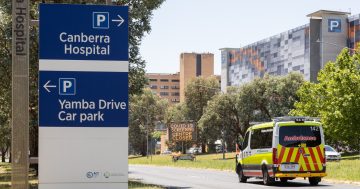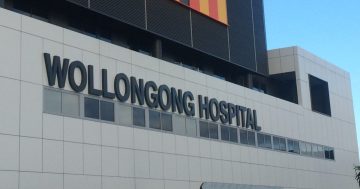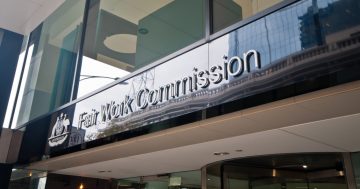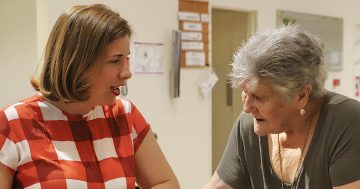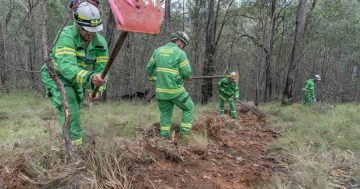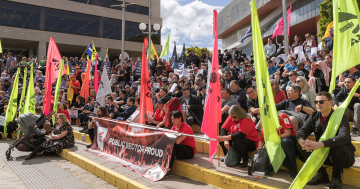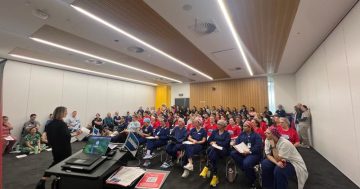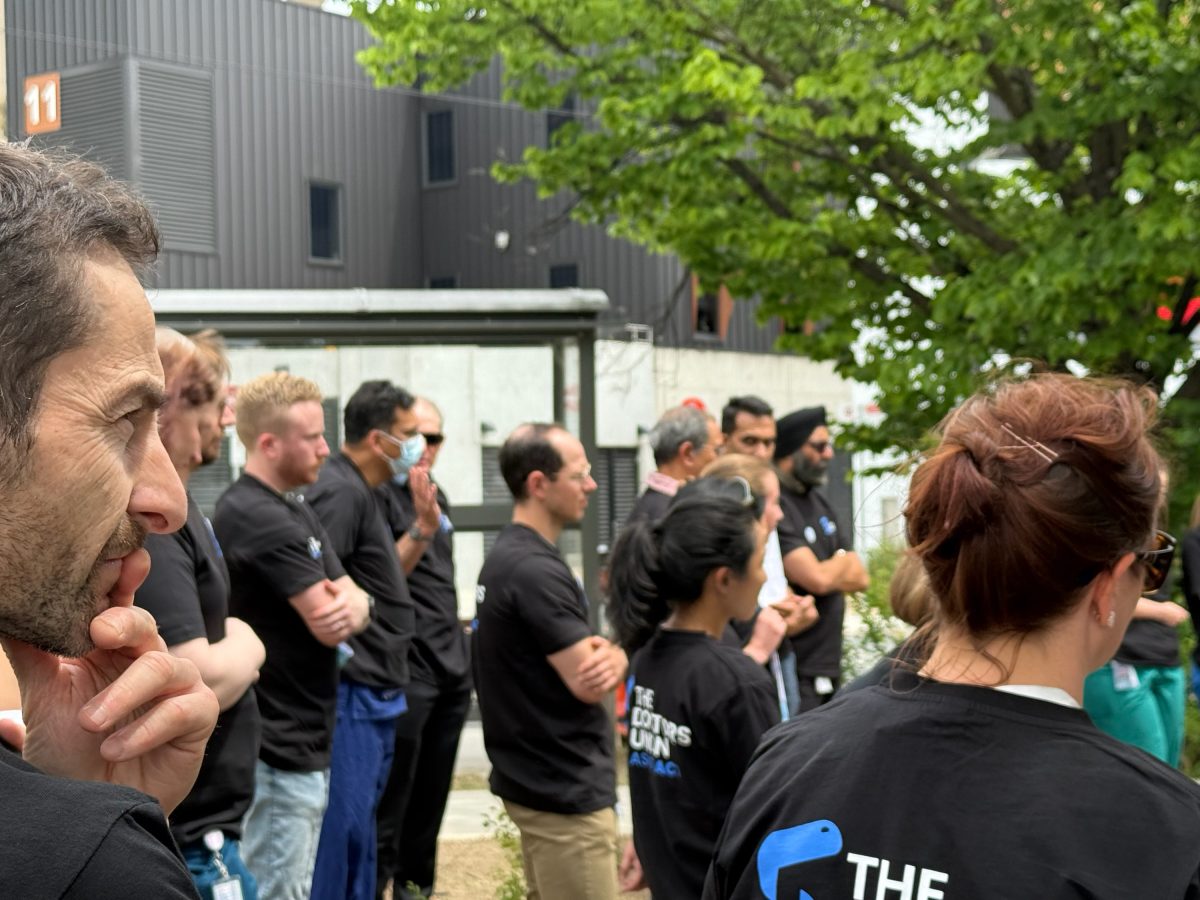
Doctors rally outside Centenary Hospital on Friday (8 November) to voice their opposition to the government’s stance against a request for arbitration by the Fair Work Commission in the ongoing wages dispute. Photos: ASMOF.
The ACT Government is opposing an application by the territory’s doctor union to the Fair Work Commission to have it act as an independent arbitrator in its ongoing wage dispute.
In response, members of the Australian Salaried Medical Officers Federation ACT (ASMOF) held a rally outside Centenary Hospital last Friday (8 November) in the hope of changing the government’s position.
ASMOF branch president Dr Jeff Looi said members had been trying to resolve this matter since 2022, but due to the government’s opposition, “members have little option but to seek to increase the industrial action”.
“Unless the ACT Government takes measures to retain doctors in the health system, then Canberrans won’t be able to receive the medical services they require,” he said.
“We are already witnessing excessive workloads and fatigue with a consequent impact on safe practice for both staff and patients.”
ASMOF members are seeking a wage increase that keeps pace with inflation, having already imposed several bans on non-clinical work and held a series of one-hour stoppages.
In September, the union rejected the territory government’s “lowest wage offer across the ACT public sector”. Of the 58 per cent of ACT doctors who voted on the government’s offer, 86 per cent opted for no.
Along with its request to the Fair Work Commission for arbitration, the union has filed an application for a further Protected Action Ballot. If supported by members, it would lead to further industrial action that may include lengthy stoppages and delays in non-urgent clinical procedures.
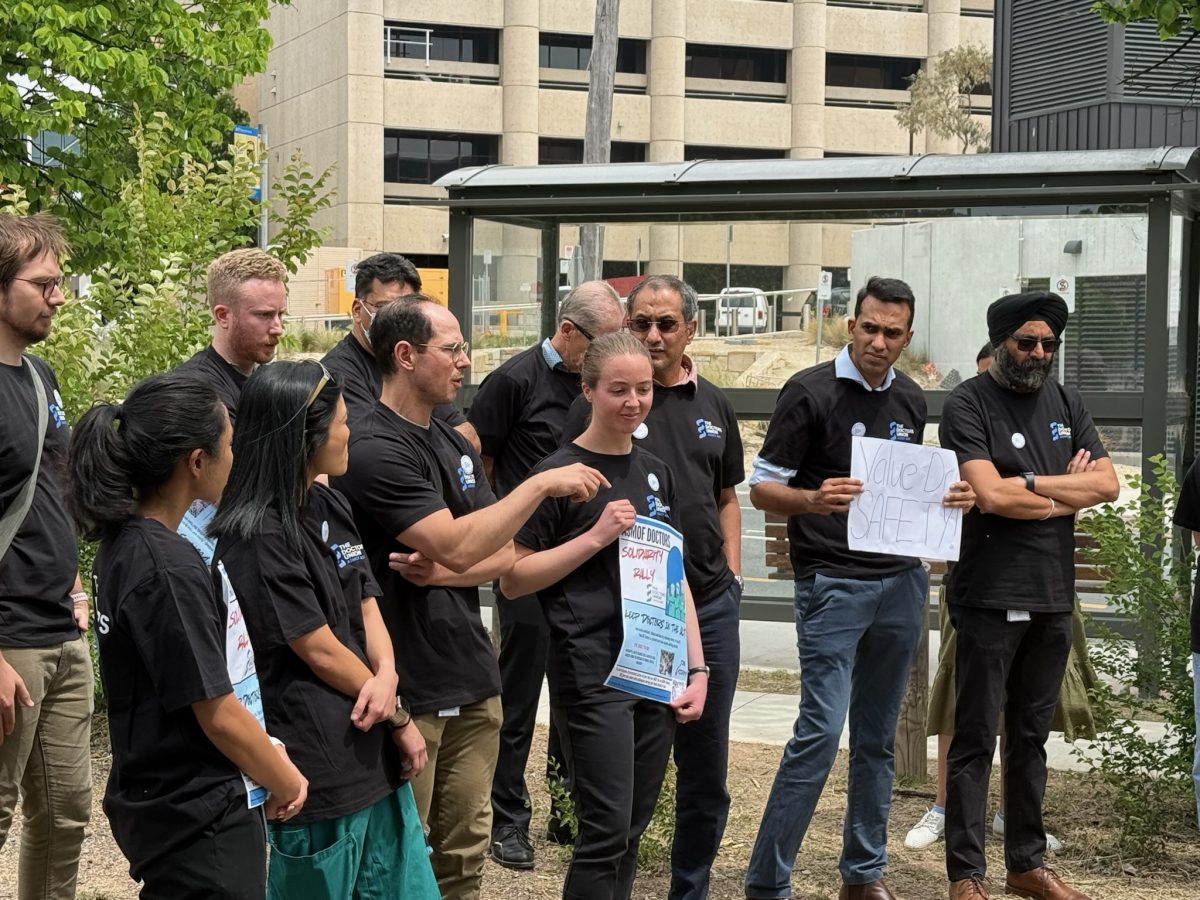
The doctors’ union says its industrial action will not risk patient safety.
Dr Looi said the ACT Government should either support the independent Fair Work Commission determining the wages dispute or match the wage outcomes in other jurisdictions.
“The ACT government cannot continue to ignore that Canberra doctors are the second-lowest-paid in Australia and that we simply cannot fill the vacancies we have, let alone expand services to meet the growing health needs of Canberrans,” he said.
Recently the Health Services Union (HSU) accepted a NSW Government offer that included 100 per cent salary packaging and a 3.5 per cent wage increase.
Under the state’s new Fair Pay and Bargaining Policy, this agreement will affect more than 50,000 public health workers, including Aboriginal health workers, dental officers, psychologists, security officers, patient support assistants, hospital cleaners, cooks, technicians, interpreters and administration staff.
The new deal includes a $1000 one-off cost-of-living payment, which comes into effect if the 12-month annual average Sydney consumer price index exceeds 4 per cent in the year to the March quarter of 2025.
It also stipulates awards reform through a memorandum of understanding (MOU) committing all parties to work cooperatively to achieve a three-year wage agreement on the expiry of the one-year award. This latter award pertains to the 4.5 per cent pay rise delivered to NSW health workers last year, which was the highest in more than a decade.


